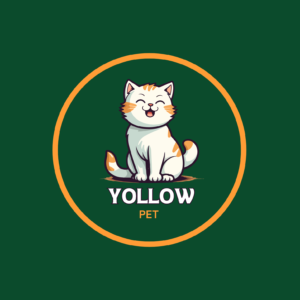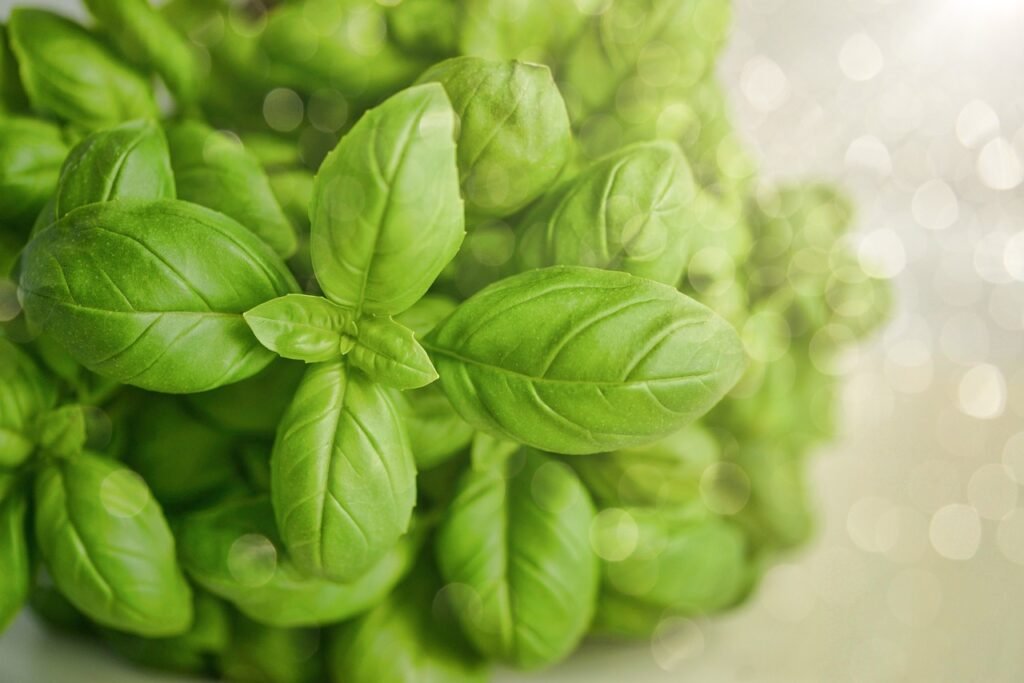Can Dogs Eat Basil?
- Introduction
Herbs have been used in human diets since the dawn of man, adding tantalizing flavor profiles, as well as health-supporting properties. Peppered in the great variety of herbs that find their way into cooking, basil puts on its raised-through-the-ranks hat with a little smile over there: In it comes (HERE!). People love basil for the added flavor in many dishes, but can dogs eat basil? In this article, we will be discussing: Is Basil Safe for Dogs to Consume & Will Including Basil in a Dog’s Diet Have Any Health Benefits and if so what are those benefits?
2. What is Basil?
A type of leafy green herb that originates from the mint family is called Basil (Ocimum basilicum). Its leaves have a pronounced narrative, which is seen in its common use fresh or dried for cooking. Basil (Tomato Sauce) Varieties — Basil can be sweet basil, Thai Sweet basil Lemon, or Holy herb; thus different taste profiles. It belongs to the mint family and is most commonly seen in Mediterranean or Asian cuisine because of its sweet taste with a touch of spicy pepper-like flavor complemented by some aroma.
3. Nutritional Profile of Basil
Basil is not only tasty; it also brings some great nutritional benefits to the table. It is a good source of vitamins and minerals that benefit health. Basil Nutrients Some of the main nutrients found in basil:
Vitamin A: crucial for good vision, a healthy immune system, and reproduction.
Vitamin K: important for blood clotting and bone health.
Antioxidant that protects cells from damage; immune support, collagen production.
Calcium: Needed for healthy bones and teeth.
Iron: Important for making hemoglobin, which transports oxygen in the blood.
Magnesium—careful, magnesium-heavy foods can have a laxative effect [23] too much of anything is never good for us but it helps muscle and nerve function plus energy production.
Apart from these vitamins and minerals, basil is packed with powerful antioxidants such as flavonoids and polyphenolic compounds which add to its anti-inflammatory and antibacterial activity.
4. Is Basil Safe for Dogs?
Basil is non-toxic to dogs, for the most part, it’s safe. This means that basil is not actually toxic to dogs, as it does not contain any substances that would immediately harm your dog. But it is important to note that no two dogs are alike, and something down one throat can become lodged in another. Basil is generally regarded as safe for dogs by veterinarians, especially when considered in comparison to other common cooking herbs like garlic or onions which are poisonous to them.
5. Basil can be quite a healthy treat for dogs
One of the few potential health benefits for dogs is when basil is included in their diet (in small amounts). The benefits of these are as follows:
Is Basil Good for Dogs?
Antioxidant Properties: Dog owners who use basil understand the load of antioxidants that can help fight oxidative stress in dogs. Oxidative stress causes cell damage and works as a building block for several chronic diseases. Basil contains a good amount of antioxidants that help to neutralize free radicals and protect our cells, promoting health and longevity.
Anti-Inflammatory: The anti-inflammatory nature of basil can be beneficial for inflammation-triggered arthritis or other inflammatory conditions in dogs. The use of basil in a dog’s diet can work to relieve some discomfort that arises from these conditions.
Anxiolytic: Basil has been shown to have compounds that can help relieve anxiety and stress in dogs. Basil: When it comes to stress and anxiety Basil got you covered, trust when I say that your dog will have relief in their life with basil because not only is natural but also a cheap inflammation for dogs.
Antibacterial and Antimicrobial Properties: The antibacterial and antimicrobial properties in basil are a simple, yet effective way to protect dogs from infections while boosting the immune system. These properties can also lead to the improvement of oral health, by controlling and inhibiting the growth of specific harmful bacteria in a dog’s mouth.
6. Reactions and side effects
Although basil is typically safe for dogs, there are a few potential risks and side effects to be mindful of.
Allergic: On odd occasions, dogs may not like basil. Symptoms of an allergic reaction may include itching, swelling, rash, or hives on the skin. If these signs are shown in the dog after eating basil, get veterinary care right away.
Some dogs might have stomach upset and even vomiting/diarrhea after eating basil (also with some other herbs or grasses), But more often this is something that happens when a dog eats an abundance of Basil all at one time. It is therefore advisable to make a slow introduction of basil to the diet and monitor how ah dog reacts to it.
Overconsumption and Toxicity: Basil is not toxic to dogs, but overconsumption can result in digestive upset. Its consumption should only be occasional, and not be included as a part of a daily diet.
Influence on Long-term: The long-term effects of regular basil ingestion in dogs there is not much research. If you feel unsure before making any drastic changes to your dog’s diet, as little amounts are generally fine.
7. How to Feed Basil to Dogs
However, you should only give basil to dogs in certain ways. Here are some methods on how to add basil to your dog’s meal:
Is Basil Safe For DogsFresh Vs Dried: Fresh and dried basil are both safe for your dog. We like to use fresh basil when we can as it has more nutrients and flavor. Dried basil works as well, but is more intense so smaller quantities should be administered.
Serving size and frequency: Basils can be given in small quantities such as a few leaves or just a little bit of dried basil is enough for most dogs. Basil is an ingredient that should be offered as a breakout from the normal diet of your dog and not on an everyday basis.
How to Serve Basil in Fun Ways: You can either add basil with your dog’s regular food, mix it along the wetter side of things, or use it as an ingredient inside homemade treats for dogs. You can blend basil with other dog-safe foods (e.g. pumpkin, peanut butter, or chicken) to make some yummy homemade treats. documents).
Preparation, And Precautions: Before serving a dog basil always rinse to get rid of pesticides or contaminants. Choose organic basil to skip the chemicals.
8. When Not to Feed Your Dog, Basil
Basil is generally safe for your dog to eat, yet specific caves exist where you might want to stay away from feeding basil.
Category of Health: A dog whose health condition belongs to a kidney problem or gastrointestinal disorder should avoid basil. There are some basil compounds that can result in these problems when ingested and it is important to seek the advice of a veterinarian.
Puppies and Gestating Bitches: Puppies have varied nutritional needs, as do gestating bitches. These dogs are recommended not to be fed basil unless it is given by a veterinarian.
Sings of Warning: If at any point you notice signs that your dog is having an adverse reaction to their favorite herb, do them a favor by taking away the basil and getting advice from a vet.
9. What is the alternative to Basil for my Dog?
If pet owners want some alternatives to feed their dogs in addition to Ashwagandha, below are a few other herbs (for dogs) that are safe and can be included as part of the diet.
Parsley — Great in Vitamin A and C, an excellent breath freshener, and can work wonders for your urinary health; also reduces inflammation.
Rosemary: This herb is an antioxidant and anti-microbial that may help with digestion. It also works as a natural preservative for when you make your own doggy treats.
Mint: Mint is just like parsley because it also freshens the breath and helps with digestion. Not to feed too much, as an overdose of mint can cause digestive problems.
- Experiences and Case Studies of Real-Life Would-not-Have-happened if not a feminist At this Point in Time Auntyeland Shit Show Maker Feminist Book Club Assistant Editor.Service Manager at Renewal House.
In Case Of Dogs: A Mustard Plant For Sure, But How About Basil? While some even claim dogs love the flavor of basil or have seen it help in reducing stinky breath and improving overall health. Some veterinarians also agree that if used properly, basil can be an excellent supplement in a dog’s diet.
An example is a dog owner who tried to help his immune system by adding fresh basil in the meals he was preparing. She noted her dog liked the taste and showed no signs of any negative or adverse reactions. In a second case, an owner with her dog – who has mild-obesity-induced arthritis — decided to use basil for its anti-inflammatory properties. There was a small movement and comfort improvement as reported by the owner.
11. Conclusion
On the whole, however, basil is safe in small amounts or moderate quantities and may provide some health benefits (such as being an antioxidant/anti-inflammatory /antibacterial,) for our dog. But it needs time for you to add a few fresh basils with regard to dogs and then take notice of the effect. While basil is safe for dog consumption it is not a substitute for feeding your furry friend on balanced and fitter complete items. Of course, it is best to talk with your vet about any dietary changes needed and if a food protocol may be appropriate for the health of this canine.
When pet owners understand the pros and cons of feeding basil to dogs, they are better able to make choices about including this herb in their furry companions’ eatables so that these pets grow healthier than ever.










